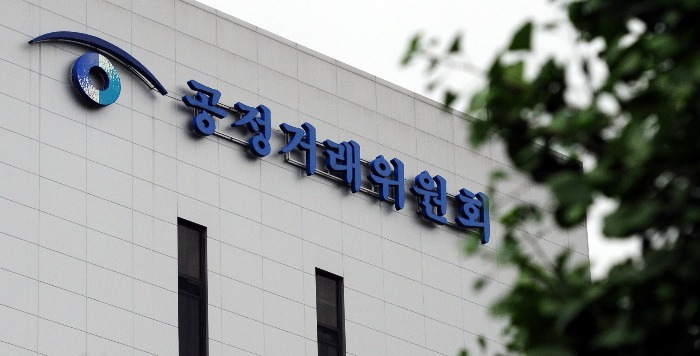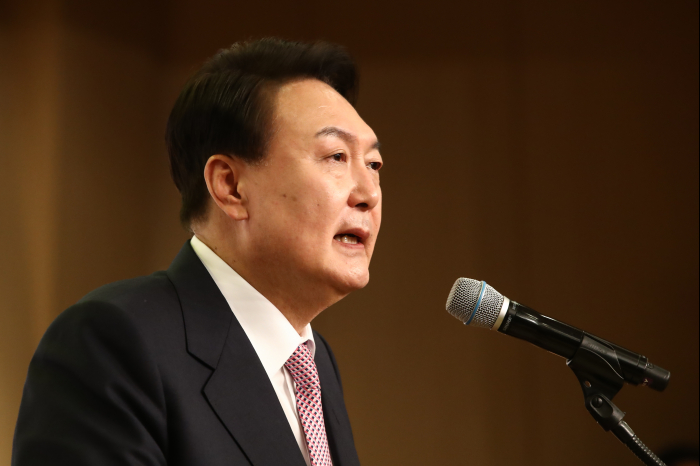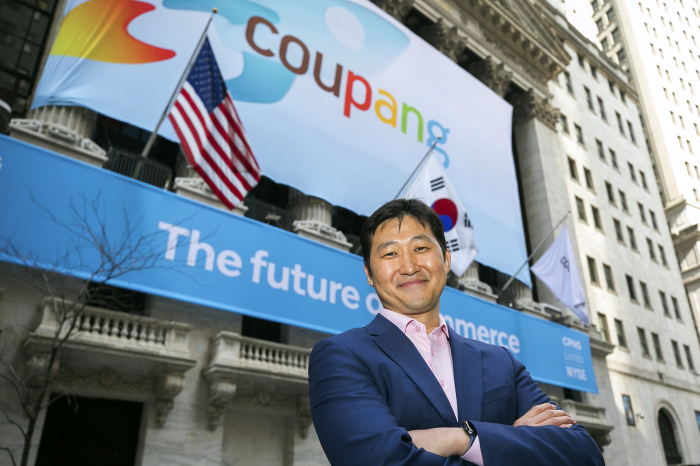Regulations
FTC pushes to monitor foreign conglomerate owners
South Korean business circles criticize the revision as outdated and against international norms
By Apr 07, 2022 (Gmt+09:00)
4
Min read
Most Read
LG Chem to sell water filter business to Glenwood PE for $692 million


Kyobo Life poised to buy Japan’s SBI Group-owned savings bank


KT&G eyes overseas M&A after rejecting activist fund's offer


StockX in merger talks with Naver’s online reseller Kream


Mirae Asset to be named Korea Post’s core real estate fund operator



President-elect Yoon Suk-yeol's transition committee has included such possible revisions to current antitrust legislation to its list of agenda items to consider. The Korea Economic Daily confirmed the development on Wednesday in an exclusive report.
Each year on May 1, the FTC discloses a list of conglomerates and their leaders having 5 trillion won ($4.1 billion) or more in total assets.
The regulatory body releases the compilation in the name of preventing monopoly and monitoring any unlawful practices of the companies’ chief executives and their familial relations.
Until now, this compilation only included entrepreneurs of South Korean citizenship.
The FTC is betting on a pledge that President-elect Yoon Suk-yeol made during his campaign – which was to make “logical adjustments” to the antitrust legislation – to expand its authority beyond Korean nationals.

Industry insiders say the revision has a specific target in mind.
The regulatory body hopes to implement the changes in May 2023; following the revision to a relevant ordinance in the latter half of this year. If realized, the commission will have grounds to monitor Kim Beom-seok, the founder and head of e-commerce behemoth Coupang Inc.
Even though Kim is the controlling shareholder of the country’s largest e-commerce platform, he is yet to be on the FTC list due to his American citizenship.
If and when the revision becomes effective, the 43-year-old will have to disclose the Delaware-incorporated company's financial information to Seoul. The Korean-American entrepreneur’s relatives will also have to report their stakes in the conglomerate to the regulatory body.
The FTC explains the measure is aimed at making sure conglomerates do not take advantage of the chief executives’ non-Korean citizenships to bypass domestic antitrust regulations.
In what legal professionals would categorize as a case of reverse discrimination, only foreign nationals of South Korean heritage would be subject to the latest revision. That is, the FTC will not consider foreign nationals who are not Korean by blood.

Such restrictions could cause Seoul to lose its most favored nation (MFN) status with Washington.
The two countries benefit from preferential rates on tariffs for goods and services traded between the two allies, thanks to the Korea-US Free Trade Agreement that entered into force on March 15, 2012. In international economic relations, MFN is a level of privilege accorded by one state to another in good faith.
The mandatory disclosure of US-incorporated businesses and its citizens could also rub Washington the wrong way in light of the Korean FTC’s preferential treatment of S-Oil Corp.
Even though Saudi Aramco is the largest shareholder of S-Oil, the commission has named the holding company as its head and not the Saudi royals.
“We came to the conclusion that there is no reason to not appoint a foreign national as the head of a company based in Korea,” an expert who took part in the discussions for the ordinance revision told The Korea Economic Daily.
Participants to the thorny discussion allegedly agreed that any possible friction with Washington following the revision is something that needs to be addressed.

There are 168 ordinances and 717 legal provisions related to the antitrust policy on restricting the power of conglomerates and their owners, according to the Federation of Korean Industries. A Federation member said, "The appointment policy on owners of conglomerates only exists in South Korea and needs to become obsolete.”
Coupang joined the rank of a conglomerate in South Korea last year, on the back of robust sales during the pandemic. The e-commerce juggernaut posted $18.4 billion in sales in 2021, up 54% on-year.
All eyes are on whether Seoul’s antitrust regulatory body and the incoming Yoon administration will push ahead with the revisions despite possible pushback from the industry heavyweights and discord with Washington.
Write to So-Hyeon Kim, Ji-Hoon Lee, Jee Abbey Lee at alpha@hankyung.com
Jee Abbey Lee edited this article.
More to Read
-
 Tech, Media & TelecomSlack gains more than 1,000 clients in S.Korea in just two years
Tech, Media & TelecomSlack gains more than 1,000 clients in S.Korea in just two yearsApr 06, 2022 (Gmt+09:00)
3 Min read -
 Venture capitalBlockchain VC Hashed forecasts emergence of protocol economy
Venture capitalBlockchain VC Hashed forecasts emergence of protocol economyMar 14, 2022 (Gmt+09:00)
5 Min read -
 Korean startupsCoupang wraps up 2021 with record sales of $18.4 bn
Korean startupsCoupang wraps up 2021 with record sales of $18.4 bnMar 04, 2022 (Gmt+09:00)
3 Min read -
 LogisticsCoupang to shake up Korea’s logistics industry landscape
LogisticsCoupang to shake up Korea’s logistics industry landscapeJan 12, 2022 (Gmt+09:00)
3 Min read -
 E-commerceCoupang's No. 2 shareholder unloads over $1 bn shares
E-commerceCoupang's No. 2 shareholder unloads over $1 bn sharesDec 29, 2021 (Gmt+09:00)
1 Min read
Comment 0
LOG IN


